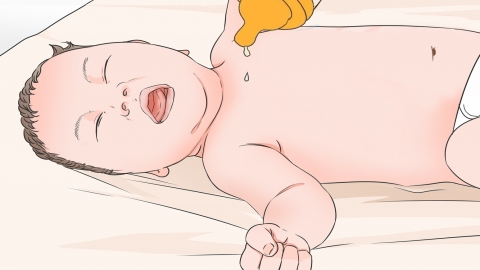Why is my 11-month-old baby's stool unusually smelly, and what should I do?
Defecation usually refers to bowel movements. Especially foul-smelling stools in an 11-month-old baby may be caused by improper diet, inadequate fluid intake, indigestion, constipation, acute gastroenteritis, or other factors. It is recommended to seek medical attention promptly and follow a doctor's advice for improvement through general management, medications, and other treatments. Specific analyses are as follows:

1. Improper diet: If the baby has recently consumed excessive high-protein foods such as eggs and milk, protein may accumulate in the body, leading to foul-smelling stools. Parents can alleviate this by adjusting the baby’s diet, offering light and easily digestible foods in appropriate amounts.
2. Inadequate fluid intake: Insufficient water intake can cause dry, hard stools and poor elimination of waste from the intestines, which promotes bacterial growth and leads to odor. Increase the baby’s fluid intake—besides regular feeding, offer small amounts of plain water throughout the day, totaling 100–200 mL daily depending on the baby’s needs.
3. Indigestion: Weak gastrointestinal motility in babies may prevent complete digestion of food, resulting in foul-smelling stools and bloating. Parents can gently massage the baby’s abdomen to promote blood circulation and improve these discomforts.
4. Constipation: This may be related to poor diet or abnormal digestive function, often presenting with dry stools and difficulty defecating, along with foul odor. Under medical guidance, parents may administer medications such as *Bacillus subtilis* and bivalent live granules, bifidobacterium triple viable powder, or lactulose oral solution.
5. Acute gastroenteritis: This condition may result from consuming contaminated food or abdominal chilling. Inflammation can cause symptoms such as abdominal pain and diarrhea, and may also lead to foul-smelling stools. Under a doctor’s supervision, medications such as smectite powder, ribavirin granules, or oseltamivir phosphate granules may be used to improve symptoms.
In daily life, parents should pay attention to proper infant care, closely observe the baby’s physical condition, and maintain a light and balanced diet to support overall health.








